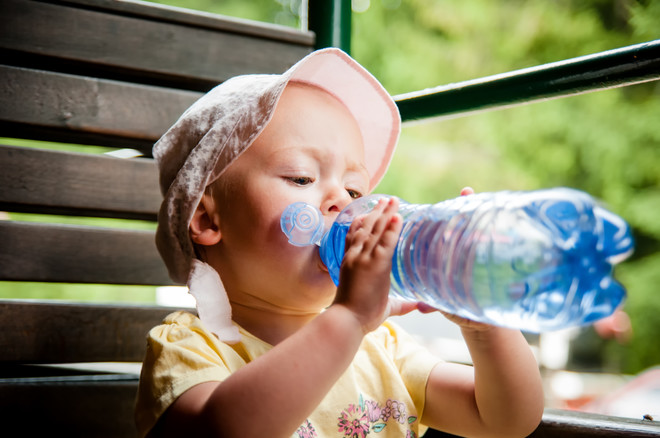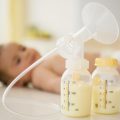What is the difference between children's water from the usual? What myths are common among consumers and what do recent studies show? We will try to understand together with the technologist, production manager of the company "Pure Water" (TM Noring) Dmitry Anatolyevich Polyudov. Photo:Getty ImagesIs it true that between mineral and baby water, it is better to choose mineral water?According to the definition of the International Bottled Water Association (IBWA), bottled water is divided into three categories: artificial, mineral and drinking. Each category has its own differences in many parameters, in particular, in the method of extraction and filtration, the degree of mineralization (or lack thereof), indications for use. Moreover, water can also be carbonated or still.Many parents are sure that by buying their child a bottle of mineral water, they are doing a good thing, but this is not true. Mineral water, especially when it comes to infants, can cause irreparable harm to health. Water obtained from mineral springs contains a certain increased amount of micro- and macroelements designed for an adult body. For example, if we are talking about calcium and magnesium, then according to sanitary standards, their content in drinking water intended for children should not exceed 80 and 50 mg per liter, respectively, and in mineral water their amount is much higher and can reach 500 mg per liter. This can be of fundamental importance if your baby is bottle-fed, since hard water is worse absorbed by cells, and also poorly dissolves baby food, which interferes with its full absorption and, therefore, the formation of a healthy body. According to the expert: "random mineral water" can contain an excess of mineral salts, which can lead to clogging of the child's blood vessels with salt deposits and cholesterol plaques. It is at an early age that the impact of any compounds has the greatest impact on the health of the child. Moreover, many mineral waters contain elements that can harm health. For example, carbon dioxide, which irritates the walls of the stomach, as well as fluoride ion. The fluoride ion content should be within 0.6-1.0 mg/l (for ordinary water of the highest category, up to 1.5 mg/l is allowed). Excess fluoride in the baby's body can lead to damage to teeth and bones. Children's water is still artesian drinking water of the highest category, which is additionally enriched with vital macro- and microelements, such as calcium, potassium, magnesium and iodine, fluorine. Unlike mineral waters for adults, it provides the child's body with the necessary elements, without overloading it. That is why, when choosing between mineral water and children's water for a child, it is worth choosing the latter. Read also:
Photo:Getty ImagesIs it true that between mineral and baby water, it is better to choose mineral water?According to the definition of the International Bottled Water Association (IBWA), bottled water is divided into three categories: artificial, mineral and drinking. Each category has its own differences in many parameters, in particular, in the method of extraction and filtration, the degree of mineralization (or lack thereof), indications for use. Moreover, water can also be carbonated or still.Many parents are sure that by buying their child a bottle of mineral water, they are doing a good thing, but this is not true. Mineral water, especially when it comes to infants, can cause irreparable harm to health. Water obtained from mineral springs contains a certain increased amount of micro- and macroelements designed for an adult body. For example, if we are talking about calcium and magnesium, then according to sanitary standards, their content in drinking water intended for children should not exceed 80 and 50 mg per liter, respectively, and in mineral water their amount is much higher and can reach 500 mg per liter. This can be of fundamental importance if your baby is bottle-fed, since hard water is worse absorbed by cells, and also poorly dissolves baby food, which interferes with its full absorption and, therefore, the formation of a healthy body. According to the expert: "random mineral water" can contain an excess of mineral salts, which can lead to clogging of the child's blood vessels with salt deposits and cholesterol plaques. It is at an early age that the impact of any compounds has the greatest impact on the health of the child. Moreover, many mineral waters contain elements that can harm health. For example, carbon dioxide, which irritates the walls of the stomach, as well as fluoride ion. The fluoride ion content should be within 0.6-1.0 mg/l (for ordinary water of the highest category, up to 1.5 mg/l is allowed). Excess fluoride in the baby's body can lead to damage to teeth and bones. Children's water is still artesian drinking water of the highest category, which is additionally enriched with vital macro- and microelements, such as calcium, potassium, magnesium and iodine, fluorine. Unlike mineral waters for adults, it provides the child's body with the necessary elements, without overloading it. That is why, when choosing between mineral water and children's water for a child, it is worth choosing the latter. Read also:

Making Money with Desserts: Success Stories
Evgeniya Polischuk (Fedutinova) instagram:@evgeniyafedutinovavk.com/janeshomebaking– It all started with baking for family and friends. Gradually, I started posting photos of my baked goods on Instagram – and orders started coming in. I made my first custom-made cake on October 13, 2014, and a little earlier I started making macaroons and cupcakes. You could say that the business “found me”, I am very […]

Soups are cold recipes with photos
Cold cucumber soup with yogurt and lemonsorbet from the chef of the restaurant La Taverna Alexander Zhurkin Photo: Getty Images Ingredients: Plain yoghurt – 125 g Cucumber – 150 g Lemon/lime sorbet – 50 g Cocktail shrimp – 24 g Fresh ginger juice – 1 g Lime juice – 5 g Fresh orange juice – 5 g Parsley – 1 g Pink pepper – 1 g Watercress – […]

barbeque kebab
Pork tenderloin in glaze Photo:Dmitry Bayrak/dbstudioPreparation time: 20 minutes + marinating time.Calories: 454 kcal per serving.For 4 servings: 4 pork tenderloins (approximately 300 g each), 1 onion, 2 cloves of garlic, 1 tsp. lemon zest, 1 tsp. lemon juice, a pinch of ground cumin, coriander and turmeric, 1 tbsp. vegetable […]

Pierre Duacan: dietary recipes: Ducane diet
Beetroot soup Photo:Season’S, Luxury Hotels RepresentationYou will need:· Boiled beetroot – 60 g· Fresh cucumbers – 20 g· Red radish – 20 g· Green onions – 10 g· Egg – 1 pc.· Drinking mineral water – 200 g· Salt – 1 gPreparation:· Boil the egg and beetroot.· Grate the cucumbers, radish and part of the beetroot. Put everything […]





